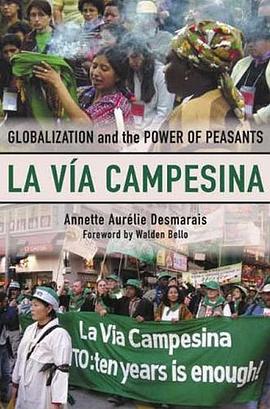

具體描述
Should governments give special rights to ethnic and cultural minorities? Should rich countries open their borders to economic immigrants or transfer resources to poor countries? When framing and implementing economic and environmental policies, should current generations take into account the interests of future generations? If our political community committed a wrong against another group a hundred years ago, do we owe reparations to current members of that group?
These are just some of the pressing questions which are fully explored in this accessible new analysis of justice in the contemporary world. They force us to reconsider the extent of our obligations to our fellow citizens, future generations and foreigners.
Justice in a Changing World introduces the moral debates around issues such as immigration, national self-determination, cultural rights and reparations, as well as resource transfers from one generation to the next and from rich to poor countries, through the lenses of liberalism, communitarianism and libertarianism. In so doing, it helps to unravel the complexity of key ethical dilemmas facing us today.
The book will be a valuable resource for students of political theory, and will appeal to anyone wishing to reflect on their deepest values and commitments by putting them to the test of practical politics.
著者簡介
Cécile Fabre is Professor of Political Theory at Edinburgh University.
圖書目錄
1. Introduction.
2. Egalitarian liberalism.
2.1. Rawls' Theory of Justice.
2.2. Egalitarian liberalism post Rawls I: luck egalitarianism.
2.3. Egalitarian liberalism post Rawls I: sufficientism.
3. The communitarian critique of Rawls: individuals and communities.
4. The libertarian critique of Rawls: justice as entitlements.
5. Themes and issues.
Chapter 2 Justice towards future generations.
1. Introduction.
2. Egalitarian liberalism and future generations.
2.1. Rawls' just savings principle.
2.2. Luck egalitarianism.
2.3. Sufficiency.
3. The transgenerational community: a source of obligations to our successors.
4. Libertarianism and future generations.
5. Two objections to obligations to future generations.
5.1. Rights, obligations, and non-existing people.
5.2. The non-identity objection.
6. Conclusion.
Chapter 3 Multiculturalism .
1. Introduction.
2. An egalitarian liberal position: Kymlicka's defence of minority rights.
3. Communitarianism and minorities.
4. A libertarian position: Kukathas' liberal archipelago.
5. Conclusion.
Chapter 4 National self-determination.
1. Introduction.
2. Liberal nationalism.
3. Communitarianism and national self-determination.
4. Libertarianism and national self-determination.
5. Conclusion.
Chapter 5 Global distributive justice .
1. Introduction.
2. Egalitarian liberalism and global distributive justice.
2.1. Luck egalitarianism, sufficientism and the irrelevance of borders.
2.2. Egalitarian liberalism and the moral relevance of borders I: Rawls's.
Law of Peoples.
2.3. Egalitarian liberalism and the moral relevance of borders II: Nagel's.
political conception of justice.
3. Communitarianism and global distributive justice.
4. Libertarianism and global distributive justice.
5. Conclusion.
Chapter 6 Immigration .
1. Introduction.
2. An egalitarian liberal case for relatively open borders.
2.1. A Rawlsian view on immigration.
2.2. Egalitarian liberal arguments for open borders.
2.3. Open borders and distributive justice: sufficiency and immigration.
3. A communitarian position: Walzer on immigration.
4. A libertarian position: Hillel Steiner on immigration.
5. Who should take in immigrants?.
6. Conclusion.
Chapter 7 Reparation for past injustices.
1. Introduction.
2. Egalitarian liberalism and reparative justice.
2.1. Luck egalitarianism, sufficientism, and reparations.
2.2. Refining the egalitarian liberal position.
3. Communitarianism and reparations.
3.1. The transgenerational community: in defence of reparations.
3.2. Judging the past: a very limited defence of reparations.
4. Libertarianism and reparations.
5. Conclusion.
.
Conclusion.
Works cited
· · · · · · (收起)
讀後感
評分
評分
評分
評分
用戶評價
相關圖書
本站所有內容均為互聯網搜索引擎提供的公開搜索信息,本站不存儲任何數據與內容,任何內容與數據均與本站無關,如有需要請聯繫相關搜索引擎包括但不限於百度,google,bing,sogou 等
© 2025 book.quotespace.org All Rights Reserved. 小美書屋 版权所有




















